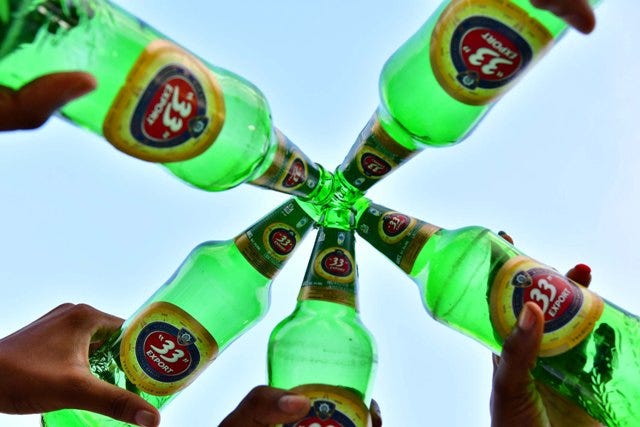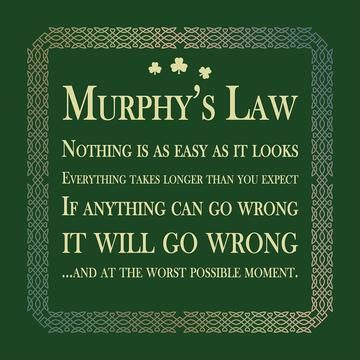Chiamaka Dike voiced over this article. To learn more about her work, visit here.
It’s July 4, 9:16 pm as I type this, and the idea for this post only struck me on my way to buy amala at the famous Amoke restaurant. One could argue that if necessity is the mother of invention, hunger is the mother of inspiration.
This is my first post this year, so although seven months late, happy new year—or happy H2 if you prefer.

Typically, I write at least one post around my birthday, but I owe my loyal subscribers an explanation for my hiatus.
The challenges I’ve faced are twofold. First, the demands of living in Nigeria and juggling work and side gigs made it difficult to churn out articles regularly. That’s the official excuse, which is true but isn’t complete, bringing me to the second point. The real wahala was that I never quite settled on a theme. Long-time supporters may recall when I planned to shift from politics to crypto and finance, which seemed promising based on feedback. However, a series of events, culminating in new job roles, meant I had to start learning new things at work. The more I learned, the more I realized how much I didn’t know—a Socratic paradox. When I knew less, I wrote more frequently. As I acquired more knowledge, my writing shifted from opinion-laden to data-driven, ultimately requiring more research and work. Unsure if I had the bandwidth for all that, I put it on hold.
These days, I primarily write about the digital economy (read: “tech stuff”) and infrastructure. So diverse are these fields that I sometimes wonder how I keep up, but God has been my strength. Thankfully, this post isn’t about any of that. As I promised three years ago when I started this newsletter, my writing will, at its heart, center on hope. This might draw understandable criticism for being Pollyannaish, especially given the country’s currently sorry state. Still, permit me to maintain some optimism.
By the time you read this, I’ll be 33. If this were Twitter, it might take the form of “33 things I learned at 33.” But I don’t have 33 insights. I do, however, have a few lessons from this year and from wiser folks that I hope will serve you well. But first, a toast: Happy birthday to me! 🥳
Let’s dive in.
Everything takes longer than you think
Yes, including this article.
You've probably heard of Murphy's Law: if something can go wrong, it will. One of its corollaries is that everything takes longer than you think. Let me illustrate with a recent experience.
My boss assigned me a specialist course. I wasn’t thrilled, but I’d committed to it. The course overview said it would take 9 hours. “Easy,” I thought. “I’ll finish it over the weekend.”
I couldn’t have been more wrong. Those 9 hours stretched into two months. Before you call me lazy, consider the hidden costs: the time to absorb information, practice new skills, make (and learn from) mistakes, all while managing daily life. I earned the certification, but I’m still learning. This experience opened my eyes to how often this plays out in life.
I had a friend in secondary school who planned to be a dollar millionaire by 25. We’re both still waiting for that dream to materialize. I’m not mocking him—I hope he achieves it—but his plan didn’t account for the decimation of economic wealth over the past decade. I’ve seen similar situations with people setting timelines for marriage or dream jobs. Plans are good, but life often throws a spanner in the works.
So here’s my first lesson: plan, but temper your expectations. This isn’t meant to discourage you, but to help you stay resilient when faced with unexpected delays or detours on your journey—because everything takes longer than you think.
Commit yourself to learning and keep an open mind
This flows nicely from the first point. By committing to learning, I’m not talking about earning multiple degrees—although those are commendable. I’m speaking more about honing your curiosity, gaining new knowledge and applying it daily.
The beauty of embracing a learning mindset is that, over time, your perspective broadens, naturally leading to a more open mind. I have a personal heuristic for distinguishing between acquaintances and friends: Have they changed their minds on viewpoints they’ve held for five or ten years? Here, I am not referring to changing one’s values, e.g. religious faith, compassion, patriotism, etc., as being principled is a virtue.
However, when someone always wants to “die on a hill” and refuses to reconsider their stance on trending issues, it’s a red flag for me. I mentally file them under “acquaintance.” A dogmatic mind eventually stagnates, like a pond without fresh water, and time inevitably exposes its limitations.
To again use myself as an example, I was once very obstinate about never seeing Korean TV shows or reality TV. I thought they were for suckers. Silly, silly me. If I had persisted in my stubbornness, I’d have missed out on so much. This principle extends beyond entertainment choices. To use another instance and with no reason to offend, think about how some churches back in the day considered the TV the “devil’s box.” Imagine if they’d remained resolute in that dogma. The revenue stream from televangelism would have been a massive opportunity missed. In any case, they would have become dinosaurs in this day and age where you can find sermons on TikTok.
Staying open to new ideas and experiences isn’t just about personal growth—it’s about remaining relevant in a rapidly changing world. It’s about challenging your own beliefs and being willing to adapt when presented with new information.
Give yourself more credit, give people more grace
I’ve noticed that younger people often feel downbeat and depressed for not achieving as much as they'd like. While this partly relates to my first point about giving things time, there’s more to it.
Let’s put things in perspective. We’re living through historic times—and not in a good way. We’re experiencing all-time highs in inflation and debt. The middle class is shrinking. Even the real unemployment rate is likely disguised because Nigeria’s statistical agency engaged in what I can only describe as “intellectual wayo” with the numbers. Many are underemployed, with millions living below the poverty line. Seen this way, all your hard work might seem wasted, which is deeply disheartening. This is where I must urge you: don’t discount yourself. If anything, give yourself more credit—you deserve it.
I want to share a quote that I use as my WhatsApp profile picture, written by Scott Fitzgerald, the celebrated American essayist:
The test of a first-rate intelligence is the ability to hold two opposed ideas in the mind at the same time, and still retain the ability to function. One should, for example, be able to see that things are hopeless and yet be determined to make them otherwise.
Now, here’s the crucial context. This was written in 1936. Why is this important? 1936 was in the thick of the worst economic downturn in the history of the industrialized world, lasting from 1929 to 1939, more commonly known as “The Great Depression.” At its height, the unemployment rate was 24.9%. The idea of relying on male breadwinners became less appealing as many lost their jobs, compelling more women to enter the labour market for far less pay. Within that decade, marriage rates declined by 22%. And worse, the year The Great Depression eased off, World War II began.
So imagine seeing this quote at the time from someone telling you to function still when all around you seemed helpless. It would be easy to tell them off as speaking from a place of privilege and not well grounded in reality. While I would never absolve the government of the blame for putting us in this predicament, my sole intent is to uplift you. You should give yourself more credit for still being here, still fighting. Even Nigeria’s richest man is complaining about the economy.
Conversely, these times call for extending more grace to others. I’ve caught myself getting irritated over minor things, once even feeling targeted at work. But I realized I was misreading intentions due to stress. I resolved to take a moment to breathe, de-escalate, and give more leeway to people also battling tough times and deadlines. It’s amazing how much clarity you gain when you zoom out and stop making everything about you.
I’m not going to promise that things will turn around soon. I want to say that, but I don’t have the data to back it up. But I maintain that life is a cycle of peaks and troughs. And the people who win, in my experience, tend to be those who push on regardless of how dire things are. So, my final lesson here is to give yourself a pat on the back and stay determined always.
I have more to say, but brevity dictates that I wrap up here. If you’re a subscriber to my Substack and run into me in Lagos, feel free to claim a bottle of beer—or your beverage of choice. It’s the least I owe you for your patience and support.
Have a prosperous H2. See you soon!




